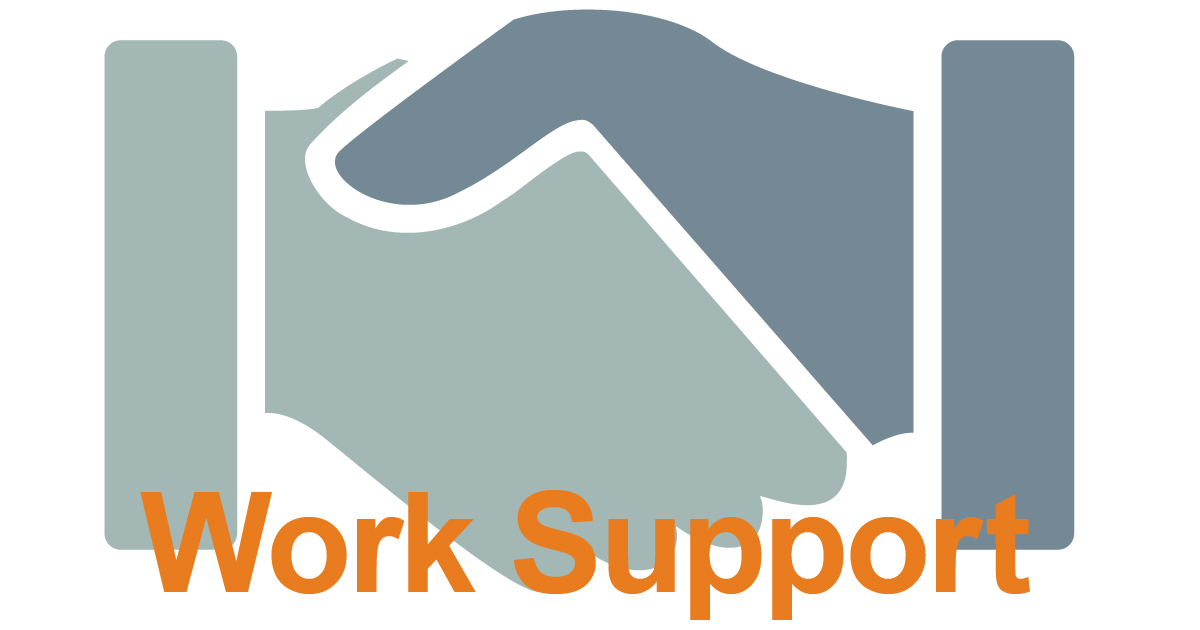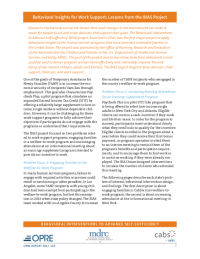Behavioral Insights for Work Support
Lessons from the BIAS Project

Research in behavioral science has shown that small changes can make it easier for people to act and make decisions that support their goals. The BIAS project, launched in 2010, was the first major effort to apply behavioral insights to the human services programs that serve poor and vulnerable families in the United States. The project was sponsored by the Office of Planning, Research and Evaluation of the Administration for Children and Families in the U.S. Department of Health and Human Services, and led by MDRC. The goal of the project was to learn how behavioral insights could be used to deliver services more effectively and, ultimately, improve the well-being of low-income children, adults, and families. BIAS targeted three domains: child support, child care, and work support.
One of the goals of Temporary Assistance for Needy Families (TANF) is to increase the economic security of recipients’ families through employment. This goal also characterizes Paycheck Plus, a pilot program that simulates an expanded Earned Income Tax Credit (EITC) by offering a relatively large supplement to low-income, single workers without dependent children. However, it can be challenging for these work support programs to fully achieve their objectives if participants do not engage with the programs or understand their requirements.
The BIAS project focused on two problems related to work support programs: engaging families in a welfare-to-work program and encouraging attendance at an informational meeting about an earnings supplement program intended to provide an incentive to work.
Problem Focus 1: Engaging Families in the Welfare-to-Work Program
In many human services programs, failure to engage with required activities or services could result in sanctioning or other penalties. In Los Angeles, some TANF recipients with young children had been exempt from participating in the welfare-to-work program, but lost this exemption in 2013 when state policy changed. The BIAS team worked with Los Angeles County to increase the number of TANF recipients who reengaged in the county’s welfare-to-work program.
Problem Focus 2: Increasing Meeting Attendance for an Earnings Supplement Program
Paycheck Plus is a pilot EITC-like program that is being offered to select low-income single adults in New York City and Atlanta. Eligible clients can receive a cash incentive if they work and file their taxes. In order for the program to succeed, participants must understand clearly what they need to do to qualify for the incentive. Eligible clients enrolled in the program about a year before they could receive their first bonus payment, so program operators invited them to an interim meeting to remind them of the program’s benefits and participation requirements, and to encourage them to find work or to continue working if they were already employed. The BIAS team designed interventions to increase the number of clients who attended this meeting.






